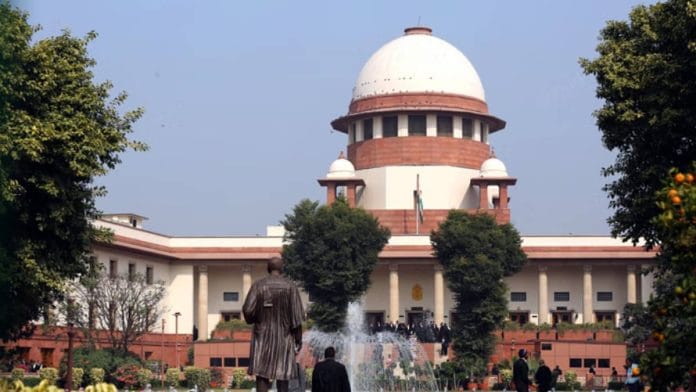New Delhi: The Rajasthan government’s request to remodel the Seven Wonders of the World Park around Ana Sagar Lake in Ajmer has been rejected by the Supreme Court, which has granted the state six months to either relocate the replicas or demolish them.
A bench led by Justice Abhay S. Oka dismissed the government’s concerns that it had already invested Rs 12 crore in developing the park, which attracts approximately 2,500 visitors daily. The court ruled that the area surrounding the lake must be cleared, necessitating either the relocation or demolition of the seven replicas.
The state had contended that the structures and pathways of the Seven Wonders Park were constructed under the Smart City Mission and serve as a public utility.
Meanwhile, the state, represented by solicitor general Tushar Mehta and additional advocate general Shiv Mangal Sharma, informed the court of its decision to designate Ana Sagar Lake as a protected wetland. The process of notifying the man-made lake as a wetland under the Wetland (Conservation and Management) Rules, 2017 is expected to take six months, the court was informed.
This commitment follows criticism from the Supreme Court in the previous hearing for the state’s failure to comply with the National Green Tribunal (NGT)’s order to remove unauthorised constructions around the lake. In August 2023, the green court raised concerns about developmental activities adjacent to the lake, warning that they were disturbing its ecological balance.
According to the NGT, the construction was in violation of environmental regulations and the 2017 Wetland Rules. It had issued an immediate demolition order for the Seven Wonders Park, Patel Stadium, Gandhi Smriti Udyan, and the food court built around the lake.
Although the state challenged the NGT’s decision before the Supreme Court, the latter, in December 2023, refused to stay the ruling. Subsequently, as the top court proceeded with the case, it reaffirmed its stance against suspending the NGT order and sought assurance from the state to comply with it.
However, last month, the bench expressed displeasure upon learning that the state had failed to implement the NGT’s directive, despite the Supreme Court’s refusal to stay it. Consequently, the court ordered the personal appearance of the state’s chief secretary.
An affidavit submitted by the state before the Supreme Court on Monday outlined the formation of a committee tasked with preparing a comprehensive document to designate the lake as a wetland. The affidavit also provided details on the demolition of the food court and the ongoing efforts to convert the tiled area into a green space.
However, the state urged the court to allow the auditorium and sports complex to remain in their current locations. It argued that the auditorium serves as a memorial dedicated to Mahatma Gandhi, featuring models that propagate his ideology.
Regarding the stadium, the state clarified that the complex is part of a polo ground spanning approximately 60,000 sq m. The stadium itself, a newly built sports facility for the public, covers around 1,880 sq m. It aligns with existing structures such as the lawn tennis court and swimming pool in the area and promotes public fitness.
Additionally, the state requested the bench’s permission to retain the existing tiled pathway constructed along the lake’s boundary. It asserted that the pathway was built to protect the lake and includes sufficient perforations to facilitate the natural inflow and outflow of water.
On Monday, the Supreme Court did not deliberate on these three structures but scheduled a hearing on 7 April to address them.
Furthermore, the affidavit provided insights into the measures undertaken by the state to maintain regular cleanliness of the lake and enhance its water quality. For this purpose, Ajmer’s municipal corporation has engaged the National Environmental Engineering Research Institute for technical support.
A team from Malaviya National Institute of Technology (MNIT) has also been assigned to recommend additional conservation measures.
(Edited by Radifah Kabir)
Also Read: Why Punjab & Haryana High Court awarded Rs 1 crore compensation to a road accident victim






